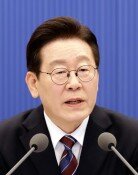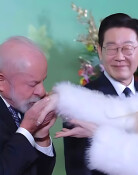[Editorial] Prosecution Reform Is out of Its Hands
[Editorial] Prosecution Reform Is out of Its Hands
Posted October. 06, 2001 08:56,
The ruling and opposition parties reached an agreement to discuss the plan for ensuring the neutrality and impartiality of the prosecution. The agreement came from the common recognition that peoples` distrust on the prosecution has reached a serious level. The fact that the expression of `utterly rotten prosecution` was mentioned in an official meeting of the ruling party indicates that the prosecution corruption and dependency on political power has reached to very dangerous degree.
The prosecution reform issue is a perennial one, and has always resulted in vain because no political power wanted to lose the expediency that came from controlling over the prosecution. Even under present government, the Justice System Reform Committee (JSRC), under direct control of president, proposed a prosecution reform bill to the President, and it had no follow-up measures. However, present discussion on the prosecution reform draws peoples` attention because it was evoked by the ruling party and positively accepted by the opposition party.
The key of the prosecution reform lies in its personnel system. The appointments of the prosecutors have been decided through the consultation between the Minister of Justice, the Prosecutor-General, and the Senior Secretary to the President for Civil Affairs. Without reforming this appointment custom, the prosecution cannot escape from its dependency on political power.
Such an appointment custom is also related to the corruption of the organization. Entangled with the regional relation and the academic relation, the personnel system is likely to be a hotbed of corruption lacking mutual restraint and the verification functions. It is worth to review the prosecutor personnel committee system screening the candidates who have been fettered by region, political clique, and academic sectarianism.
If the prosecution reform is discussed in the special committee for political reform of the National Assembly, comprised of only politicians, the reform is likely to be distorted by the political interests. The politic-oriented reform may result in a flash in the pan or may return to the old state after the shift of the government. A thoughtful discussion should be organized by collecting the opinions from the citizen and the academic circles.
The JSRC suggested in the 2000 report the anti-corruption plan to protect the prosecution organization from political influence and corruption by establishing the special investigation department independent of the Prosecutor-General, which exclusively takes charge of the investigation on the political cases, and the audit and inspection on internal affairs. The JSRC also proposed the protest system for prosecutor in charge, allowing the exception to the army-like rigidity of the prosecutor organization. If there was the protest system for prosecutor in charge, such an absurd interruption would have never take place such as the `Lee Yong-Ho gate` which was doubtfully discontinued by the unjust influence despite the arrest warranty was issued and the document evidence was detained.
Any attempt to prosecution reform cannot be accomplished without the voluntary cooperation of the prosecutor office. The prosecutor office should feel shameful about the disgraceful reality that the political circle has been relegated to come to a point where discussion for the prosecution reform has to take place. And it ought to deeply self reflect to regain the trust of people.







